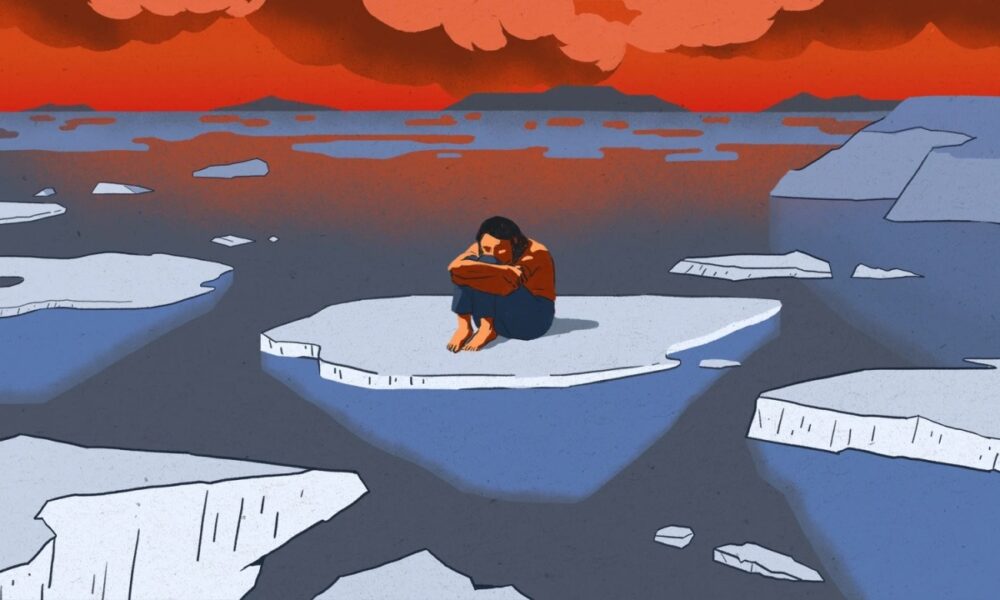During their time occupying the Arts Building, Divest McGill screened movies and documentaries shining light on the climate emergency. As the chilling images of fires, floods, and famines flashed across screens, the air became heavy. Silence reigned, and only a few deep breaths disturbed it from time to time. It brought forth the concept of “climate anxiety,” the distress caused by today’s environmental crisis. This feeling, which particularly affects younger generations, was reflected in the banners urging McGill to divest from fossil fuels. Yet, although the climate crisis raises anxiety among McGill students, the urgency of the issue is often downplayed, despite scientific consensus.
That week, the urgency of the climate crisis attenuated until it reached complete silence just past the Roddick Gates. On the other side of the gates, all one could hear was a muffled sound; the quiet but familiar melody of denial. The skyscrapers of downtown Montreal are not yet threatened by rising sea-levels nor global warming, even though Quebec’s average yearly temperature has increased by 1.2 degrees Celsius from 1979 to 2016. Among the many studies alerting the public to the climate emergency are the Assessment Reports, one of the most influential sets of documents published by the Intergovernmental Panel on Climate Change (IPCC). However, regardless of its eminence, the latest report published on Feb. 28 was barely covered by the media. Unlike the war in Ukraine, which is rightfully receiving its share of attention from most news outlets, journalists are blatantly overlooking the release of this deeply alarming document.
With a focus on how societies could continue to adapt to climate change, the newest report is a damning ultimatum to humanity, calling attention to the brief and rapidly closing window of opportunity to act against climate change. As the global temperature increases to 2.7 to 3 degrees Celsius from the pre-industrial era, the damaging effects could be irreversible. Entire ecosystems will be in jeopardy, endangered species’ extinction risks will be 10 times higher than they are today, the numbers of deaths due to heat waves could be multiplied by a factor of two or three, and three billion people could be suffering from chronic water shortages. With entire populations seeing their existence threatened, especially those in coastal regions, sitting in silence is not an option.
Canada will not be spared the consequences of climate change, as the country will experience extreme weather conditions and longer fire seasons. The report shows that certain areas that would have suffered from wildfire only once every 400 years will now be subject to it every 50 if gas emissions are not lowered. Moreover, climate injustice will particularly affect certain Indigenous peoples in Canada; for example, rising temperatures will threaten the Anishinaabe tradition of “manoomin,” or wild rice, harvest.
With each sinister prediction, the report describes a dystopia that is nearer and nearer to our certain future. Humanity is at risk: Approximately 150,000 people die every year in poor communities because of climate change, while universities like McGill continue to invest millions of dollars in pipeline projects that intrude on Indigenous territory. Once again, the trappings of capitalism prove to be the environment’s biggest threat. Yet, the report clearly emphasizes the negative economic impacts of the climate crisis on Canada, from rebuilding entire infrastructures to coping with a weakened agricultural sector.
Beyond the anger and distress, this report ultimately raises a new feeling among young people: The impression of being powerless, condemned to watch future generations grow up in a world which can no longer support them. It is time to walk back into the Arts building, where McGill students can transform this feeling of helplessness into empowerment by carrying on individual and collective action while also calling out institutions in their assault on the environment.









